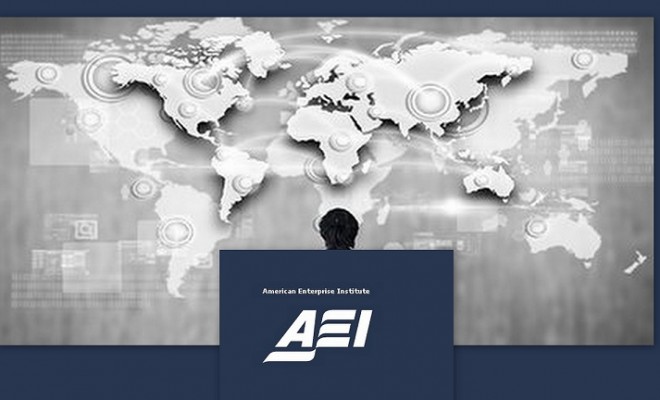
Trump needs to change course on Europe- And quickly
Dalibor Rohac
With everything he said on the campaign trail, it was inevitable that the relationship between President-elect Donald Trump and the European Union would start off on the wrong foot. But if Trump appreciates that the liberal democracies of Europe are still the best friends that America has in the world, he has to make amends. There’s still time.
Within hours of his election, a stern statement came from the German chancellor Angela Merkel, who offered Trump close cooperation on the basis of “values of democracy, freedom and respect for the law and the dignity of man, independent of origin, skin color, religion, gender, sexual orientation or political views,” implicitly referring to the president-elect’s shocking campaign rhetoric.
Merkel also waited until Thursday before calling Trump to congratulate him on his electoral success. Then there was the gaffe-prone President of the European Commission Jean-Claude Juncker, who stated, that that Europeans needed “to teach the president-elect what Europe is and how it works.” Even then, they’ll “waste two years before Trump tours the world he does not know,” he added.
Donald Tusk, the President of the European Council, was among the few who understood the gravity of the situation immediately. His short, courteous letter of congratulations stressed America’s and Europe’s shared interests, and invited Trump to an US-EU summit at “his earliest convenience.”
The president-elect has displayed even less diplomatic acumen than his European counterparts. His first foreign visitor to Trump Tower was Nigel Farage, the former leader of the United Kingdom Independence Party, a man with few friends either among the EU’s current leaders or within the UK’s Cabinet. Through Breitbart’s Stephen Bannon, he has also reached out to France’s National Front—much to the delight of Marion Maréchal-Le Pen, the granddaughter of the party’s founder, Jean-Marie Le Pen.
European leaders are in a state of panic for good reason. Some are concerned about a possible rapprochement between the United States and Russia, whose president sent Trump a “beautiful” letter of congratulations. If the US sanctions against Russia are lifted, it will become politically impossible to sustain the EU’s own sanctions regime, rewarding Vladimir Putin for the annexation of Crimea and ending any prospect for Ukraine’s future outside of Russia’s sphere of influence.
In Syria, Trump’s plan to align with Russia and the regime of Bashar al-Assad goes against Europe’s interests. It means turning the Syrian civil war into an apocalyptic campaign against Sunni Islam in the eyes of the local population and is bound to feed radicalism among Europe’s Sunni Arab populations. Russia’s bombing of the civilian population has also displaced hundreds of thousands of Syrians, adding to the refugee crisis which was itself a consequence of Assad’s war crimes.
It is also safe to assume that the Trump presidency will spell the end of the Transatlantic Trade and Investment Partnership, an agreement that could have created an integrated Atlantic marketplace and brought non-trivial economic benefits to both Americans and Europeans.
In short, if Trump stays on his current course, he’s bound to irreparably damage America’s ties to the European continent. The good news is there is still time to change direction.
First and foremost, the president-elect needs to distance himself from Russia, including from the prominent Kremlin-connected individuals in his campaign, such as Michael Flynn who is a regularon Russia Today, and Paul Manafort. Of course, the next U.S. president will—and indeed should—talk to Putin. However, he needs to do it with a clear understanding of U.S. interests and commitments to its friends and allies in Europe.
The same is true of the affinity between Trump and Europe’s nationalist right. One may or may not like the fact that the president-elect likely feels more at ease in the company of Marine Le Pen and Geert Wilders than Juncker and Tusk. Taking his personal preferences as a given, rump needs to understand that he cannot be seen to be actively undermining elected European governments by establishing privileged channels of communication with Europe’s hard-right opposition.
He must also resist the temptation to play European countries against each other. Notwithstanding the fact that Trump called NAFTA “the worst trade deal ever signed,” some Brexiteers suggest that the new administration will provide an opportunity to revive the “special relationship” by allowingthe UK to join NAFTA as an associate member. There is nothing wrong with such an arrangement in principle, but the details and framing will matter as much as the substance.
If Americans and Europeans are to work together on issues of mutual interest, Trump cannot allow his presidency to be a continuation of his campaign. Instead, the new U.S. President must embark quickly on a convincing charm offensive across European capitals, from London to Tallinn, sharply breaking with the unflattering image of himself he has imparted on Europe’s political elites.
Most importantly, if Trump’s goal is to “make America great again,” he cannot throw U.S. allies in Europe under the bus. The idea that Americans do not need Estonia, or Poland, or Europe at large, is as wrongheaded as it is dangerous. For all its size, America is not an island unto itself. It benefits from the existence of a community of like-minded, economically open, and free nations on the other side of the Atlantic. Here is to hoping that the president-elect understands this and will decide, against the odds, to prove his critics wrong.
Dalibor Rohac is a research fellow at the American Enterprise Institute (AEI), where he studies European political and economic trends. Specifically, he is working on Central and Eastern Europe, the European Union (EU) and the eurozone, US-EU relations, and the post-Communist transitions and backsliding of countries in the former Soviet bloc. He is concurrently a visiting junior fellow at the Max Beloff Centre for the Study of Liberty at the University of Buckingham in the UK and a fellow at the Institute of Economic Affairs in London.




